How Donald Trump broke the Iowa caucuses
Eric Garcia and Gustaf Kilander look into whether the Iowa caucuses have lost the qualities that gave the state its outsized role in American presidential politics in the first place
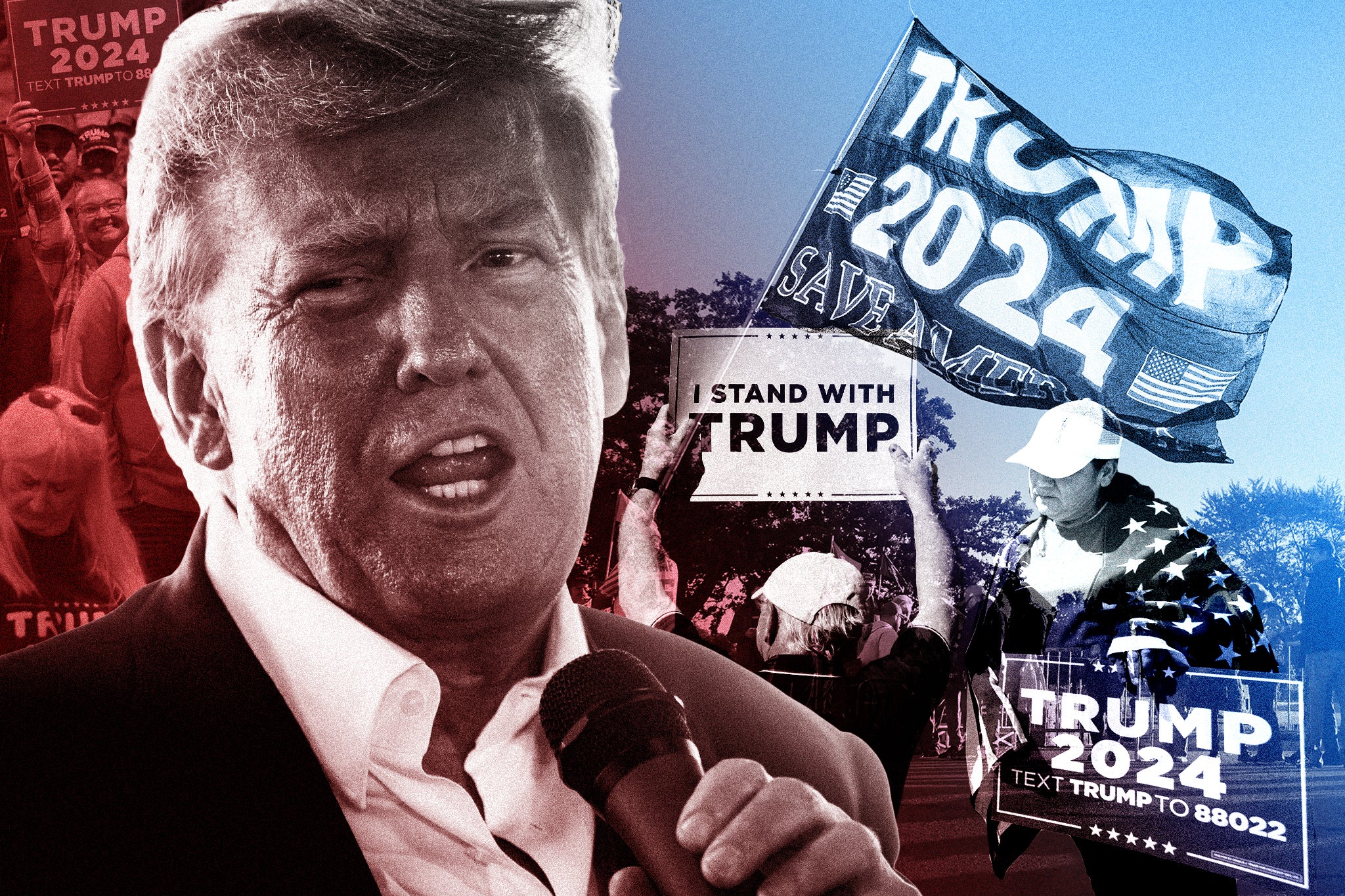
Your support helps us to tell the story
From reproductive rights to climate change to Big Tech, The Independent is on the ground when the story is developing. Whether it's investigating the financials of Elon Musk's pro-Trump PAC or producing our latest documentary, 'The A Word', which shines a light on the American women fighting for reproductive rights, we know how important it is to parse out the facts from the messaging.
At such a critical moment in US history, we need reporters on the ground. Your donation allows us to keep sending journalists to speak to both sides of the story.
The Independent is trusted by Americans across the entire political spectrum. And unlike many other quality news outlets, we choose not to lock Americans out of our reporting and analysis with paywalls. We believe quality journalism should be available to everyone, paid for by those who can afford it.
Your support makes all the difference.Not since the victory of then-Texas Governor George W Bush in the 2000 Republican primary has the Iowa caucuses picked the eventual GOP nominee.
Ironically, as the first-in-the-nation contest looks set to do so again nearly a quarter-century later, former President Donald Trump’s expected overwhelming victory on Monday 15 January may reveal the diminished influence of the caucuses, which the Democrats have now dropped altogether in favour of mail-in ballots for the 2024 contest.
Since the 1970s, the entire point of the caucuses has been that in a small state such as Iowa, an unknown presidential candidate can work hard and shake as many hands as humanly possible, perform well above expectations, and subsequently ride the wave of attention and momentum all the way to the nomination.
The example most cited is the 1976 win for Jimmy Carter, the former governor of Georgia who would go on to beat incumbent President Gerald Ford.
Mr Carter did the grunt work, starting to spend time in the state before anyone else, and building his support by doing person-to-person politicking.
Mr Trump has hosted massive rallies, speaking to hundreds and sometimes thousands of people at once. If fewer than 400 attended, it was considered a small event. The ex-president looks likely to win Monday’s contest handily having done very little, if any, of the small-scale campaigning that used to be required to win. Iowa is no longer universally seen as the stepping stone it once was.
The former president faces 91 criminal counts after he was indicted four times last year.
His attempts to overturn the 2020 election prompted legal action in Georgia, and Washington, DC, while his handling of classified documents led to an indictment in Florida. Mr Trump was also indicted in New York in relation to the hush money payment to adult actor Stormy Daniels shortly before the 2016 election. The January 6 insurrection is part of an election interference case in Washington, DC.
Mr Trump is also mired in civil cases in New York where the state Attorney General Letitia James is attempting to remove his ability to do business in the state and to impose a hefty fine on the Trump Organization after he and his children were found to have inflated the worth of their assets to attain favourable loans and insurance agreements.
The ex-president is also part of an ongoing second defamation trial from writer E Jean Carroll, who claimed Mr Trump raped her in a department store changing room in the mid-1990s. Ms Carroll argues Mr Trump repeatedly defamed her when accusing her of lying about the incident.
Betting it all on the Hawkeye State
Florida Governor Ron DeSantis has bet almost his entire campaign on doing well in Iowa, a gamble that appears unlikely to pay off.
By comparison, Mr Trump trashed Iowa’s Governor Kim Reynolds – who assumed the executive office because Mr Trump made the state’s long-serving governor Terry Branstad his ambassador to China – for her eventual support for Mr DeSantis. He avoided the normal politicking, only briefly breezing through the state fair one day without the normal type of glad-handing or munching on a deep-fried delicacy on a stick that many presidential candidates do.
As of Friday, Mr DeSantis is behind both Mr Trump and Ms Haley in FiveThirtyEight’s polling average. The former president remains far ahead at 52.3 per cent, while his former UN ambassador stands at 17.1 per cent and the Florida governor comes in at 15.7 per cent.
The obvious retort to the idea that Iowa’s time has come and gone is that 2024 is anything but a typical election year, with essentially two incumbents running against each other, and that we could be back to Iowa being at the epicentre of American politics as soon as 2028, when, regardless of if Mr Trump or President Joe Biden wins in November, there will be primaries on both sides of the aisle. Unless of course, as some of Mr Trump’s former staffers have warned, US democracy is a thing of the past at that point.
Iowa GOP State Senator Jeffrey Reichman, who’s backing Mr DeSantis, tells The Independent that “it’s a different situation” for Mr Trump in terms of campaigning.
The former president “has some security concerns, that don’t allow him to do” regular Iowa-style events.
“I don’t think any other candidate besides the former president ... could do that – that’s not a formula that has ever made a candidate successful and wouldn’t ever make a candidate successful in Iowa,” Mr Reichman said regarding Mr Trump’s preference for large rallies.
Demographics sidelines Iowa
The Democrats, led by Mr Biden, have instigated a push to end Iowa’s and New Hampshire’s dominance over the primary process, planning for South Carolina to be first.
As the Democratic Party grows more and more diverse, many party leaders feel that the overwhelmingly white states currently first in line skew the primary process in a way that isn’t fair to the party’s base. The thinking is that South Carolina, which has a large group of African American voters, better represents the party.
Iowa Senator Chuck Grassley tells The Independent that the state’s caucuses “could be in danger. You just saw it with the Democrats”.
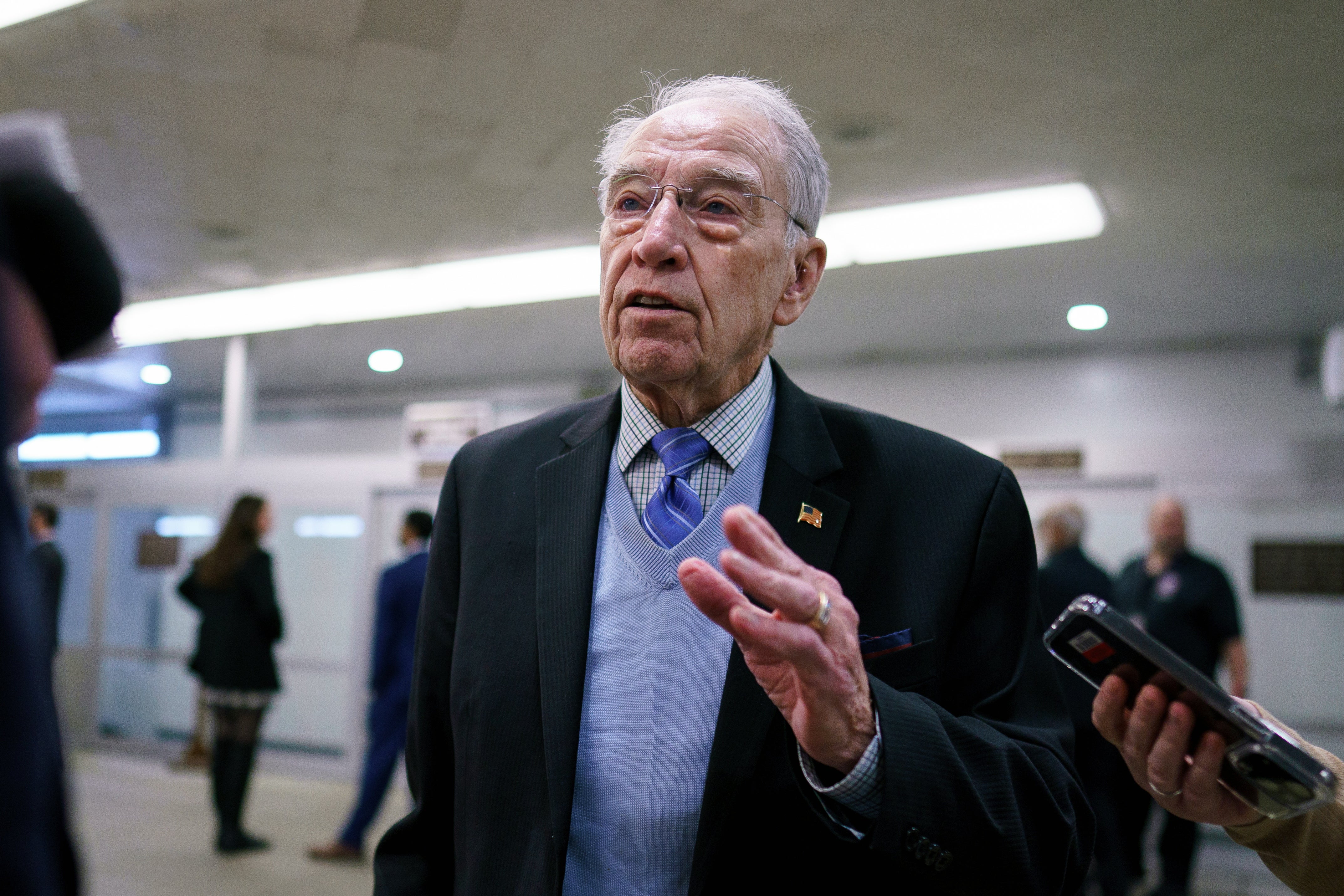
“For 41 years, the Democrats and Republicans in Iowa and New Hampshire worked in a bipartisan ... way to be first in the nation each primary and each Caucus and the Democrats blew it all up. We hope in 2028, the Democrats will come back making Iowa first,” Mr Grassley says.
In 2021, Mr Trump campaigned for Mr Grassley and endorsed him, which he later held over Mr Grassley’s head.
“I got a lot of guys elected here, including Grassley, who was having a problem,” he said, noting how he also helped Sen Joni Ernst, the state’s junior Republican senator. “Including Joni Ernst, who had a big problem.”
The 90-year-old notes that Mr Trump “doesn’t have to” do the regular retail politicking other candidates have to do to do well in Iowa.
“Every time he meets he has thousands of people come to these meetings … and so he’s campaigning the way he wants to … He’s campaigning really hard and harder than I thought he would,” he adds.
Caucuses in ‘good hands on GOP side’
Bob Vander Plaats, the head of the Iowa Family Leader and a kingmaker in the state whose support of Mike Huckabee, Rick Santorum and Ted Cruz all played a role in their victories, tells The Independent that he’s “not that concerned” about the future of the caucuses.
“I’ve got a lot of faith and the party apparatus to do a great job on Monday night,” he says. “I think President Trump has talked about how important Iowa is to the process. Governor DeSantis has talked about how important Iowa is to the process, about having to work for it this hard and do it this way. That’s important. People really get to find out who a person is.”
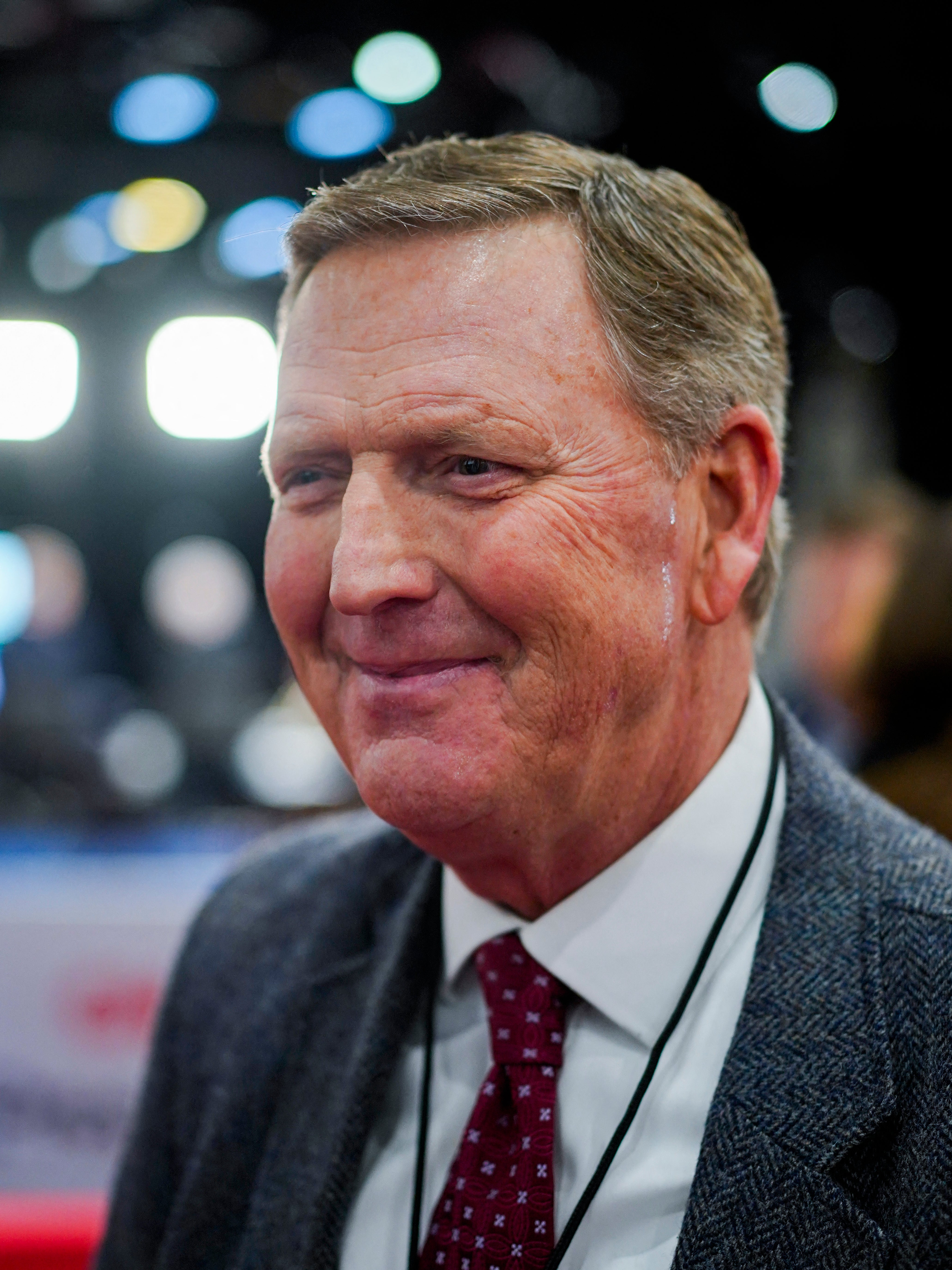
Mr Trump’s stewardship also coincided with Iowa moving from becoming the proverbial swing state – it had voted for Ronald Reagan, Bill Clinton, George W Bush, and Barack Obama in the general election – to a solidly Republican state. Mr Trump won Iowa by nine points in 2016 and Mr Biden barely made a dent in his 2020 margin.
“I think the caucuses are in good hands on the GOP side. I think the Democrats are making a mistake by taking it out of here,” he adds.
The caucus has been an unusual way of electing a candidate from the beginning and it’s facing renewed criticisms regarding it being a plain bad way of selecting a candidate.
As is the custom, there will be no polling places on Monday. Party activists will instead host meetings in whatever building is available in their precinct – churches, gyms, and people’s living rooms will be used. A representative from each campaign will get a moment to make their case and voters then write down their preferred candidate on a blank piece of paper. Volunteers then count the votes and send them along to a central party structure. While Republicans have secret ballots, Democrats physically moved around the space to stand with those supporting their preferred candidates.
The logistics
The problem with having a caucus becomes clear if you consider the logistics. They’re held at 7pm on a weeknight – this year they happen to fall on Martin Luther King Day – in the middle of winter, which in Iowa often means freezing temperatures and snow, with forecasts for Monday showing temperatures as low as -8°F (-22°C). Unlike with a primary, where you can leave after casting your ballot, the process often lasts for hours, making it difficult to attend for parents with young children, pet owners, or those who work at night.
For Democrats in 2020, the process failed so miserably that it took days to produce a result – going against the idea that the caucus is supposed to provide onward momentum for those that do well. Although, the eventual winner, the former mayor of South Bend, Indiana Pete Buttigieg, managed to parlay his primary success into a cabinet post leading the Department of Transportation.
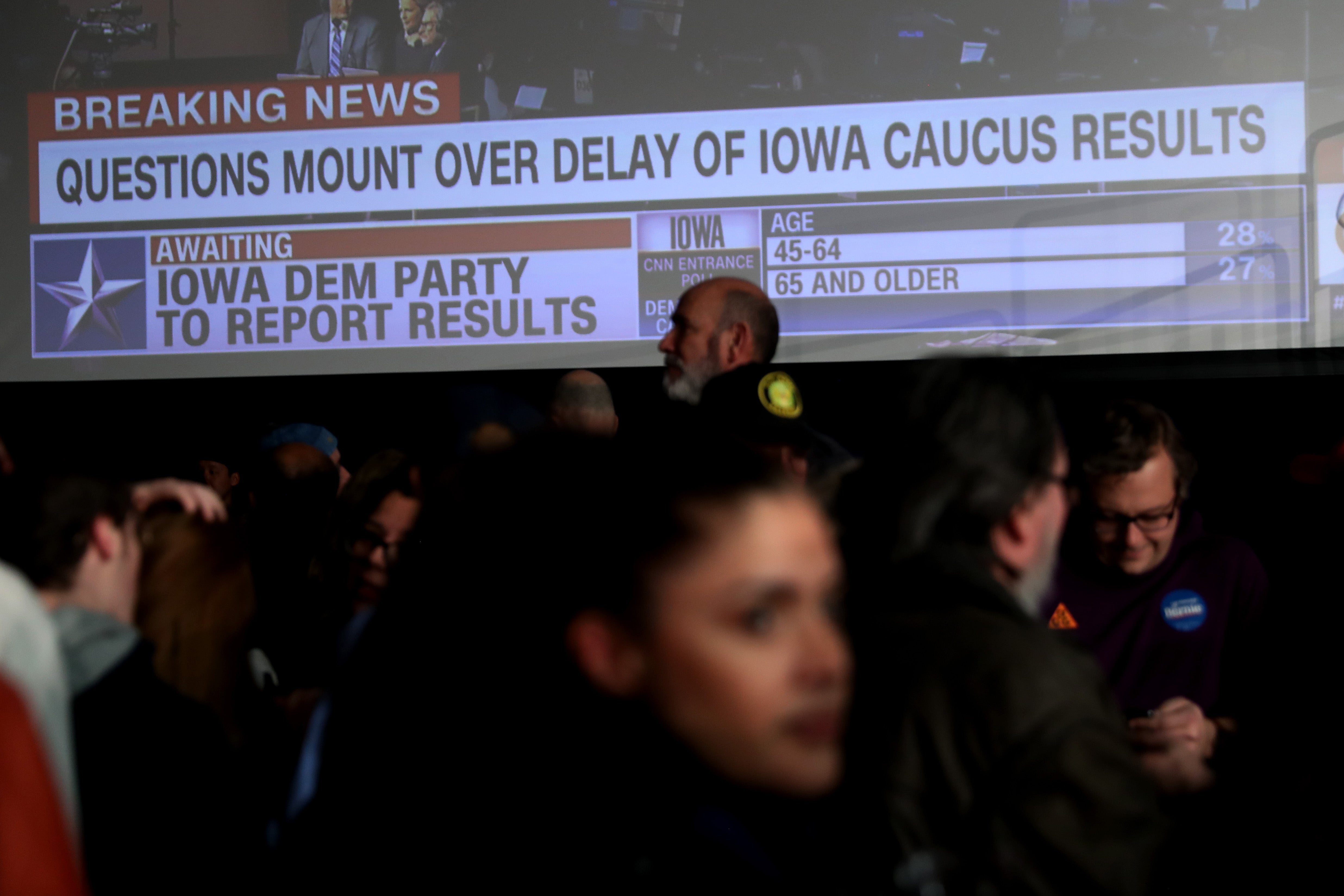
Iowa Democrats have now left the caucus behind, and they will this year mail in their ballots and the result will be announced, presumably to little fanfare, in March. Technically, there will be Democratic caucuses on Monday, but they will be purely administrative.
The Trump factor
Many Iowans argue that the state should still be the first in the nation and that the caucus should remain, that moving it to a bigger state will prevent one-on-one candidate-to-voter interactions.
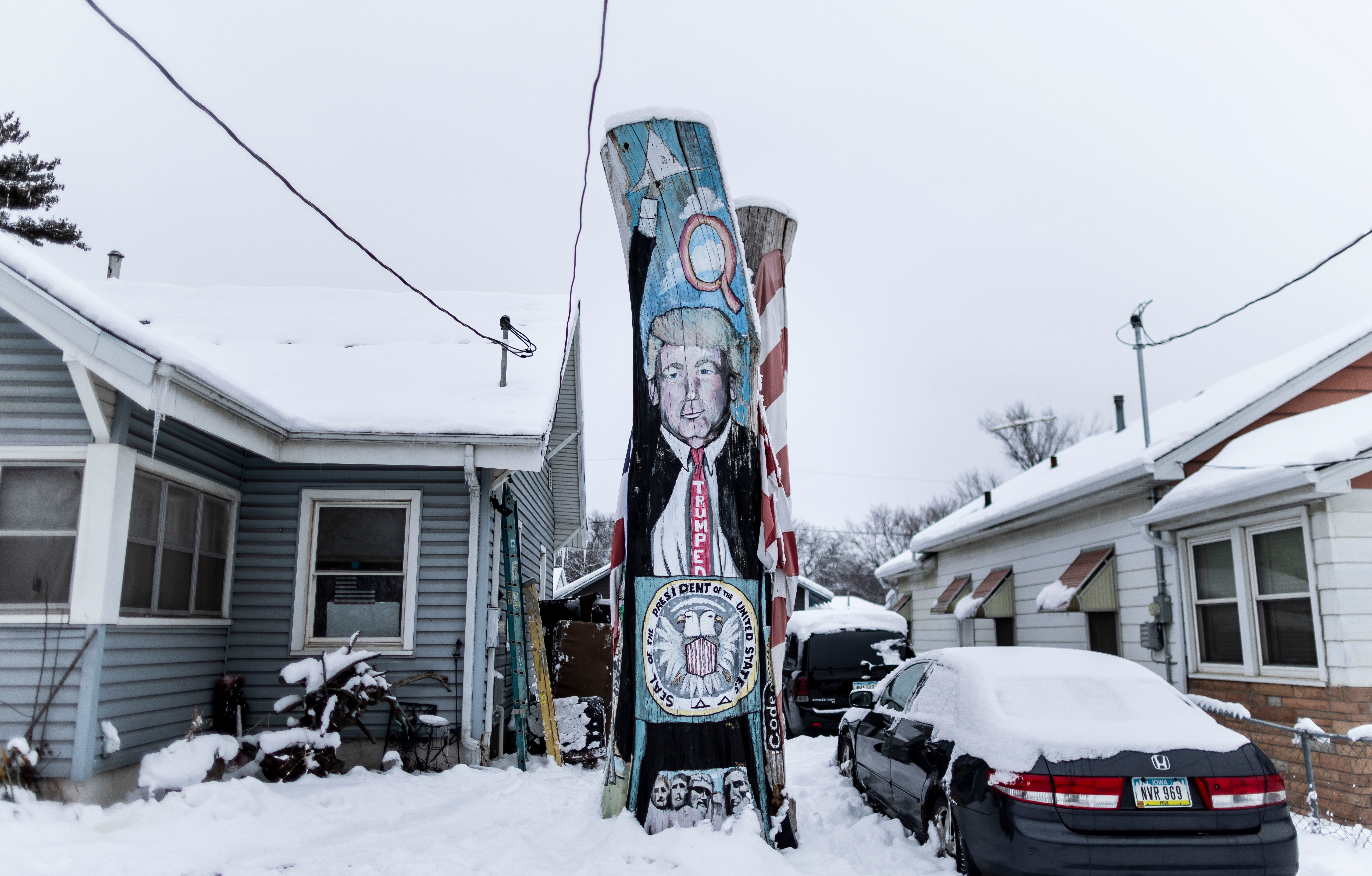
But as Thad Nearmyer, the chairman of the Republican Party in Jasper County, Iowa – an area of fewer than 40,000 people, tells The Independent, one of Mr Trump’s smaller events in the state was still attended by hundreds of people.
He says “it’s possible” the state could lose its first-in-the-nation status.
Asked if Mr Trump has changed the Iowa game with his focus on rallies, Mr Nearmyer says “That’s hard to say. I mean, he’s in a different position, being a former president. And if you don’t know who Donald Trump is by now, you’re never going to”.
“He was just here in Newton … it was a rally, but the room held around 325 people. So it wasn’t a huge rally, like you’ve seen them do the outdoor ones,” he notes.
It “was nothing like that. It was fairly intimate as far as a rally would go,” he adds.
“I hope that we can keep it because it’s just such a uniquely Iowa thing,” he says about the caucuses. “And we … get these opportunities to meet these presidential candidates one on one – we had our first one come to Jasper County last April. So for the better part of the last year, we’ve been having candidates come through our county and make stops”.
‘A good deal for the state’
“It’s gotten to the point where every single Republican who was running for president has made it to Jasper County. Some of them are no longer in the campaign, but they all have been here at least once. It’s a good deal for the state,” he notes.
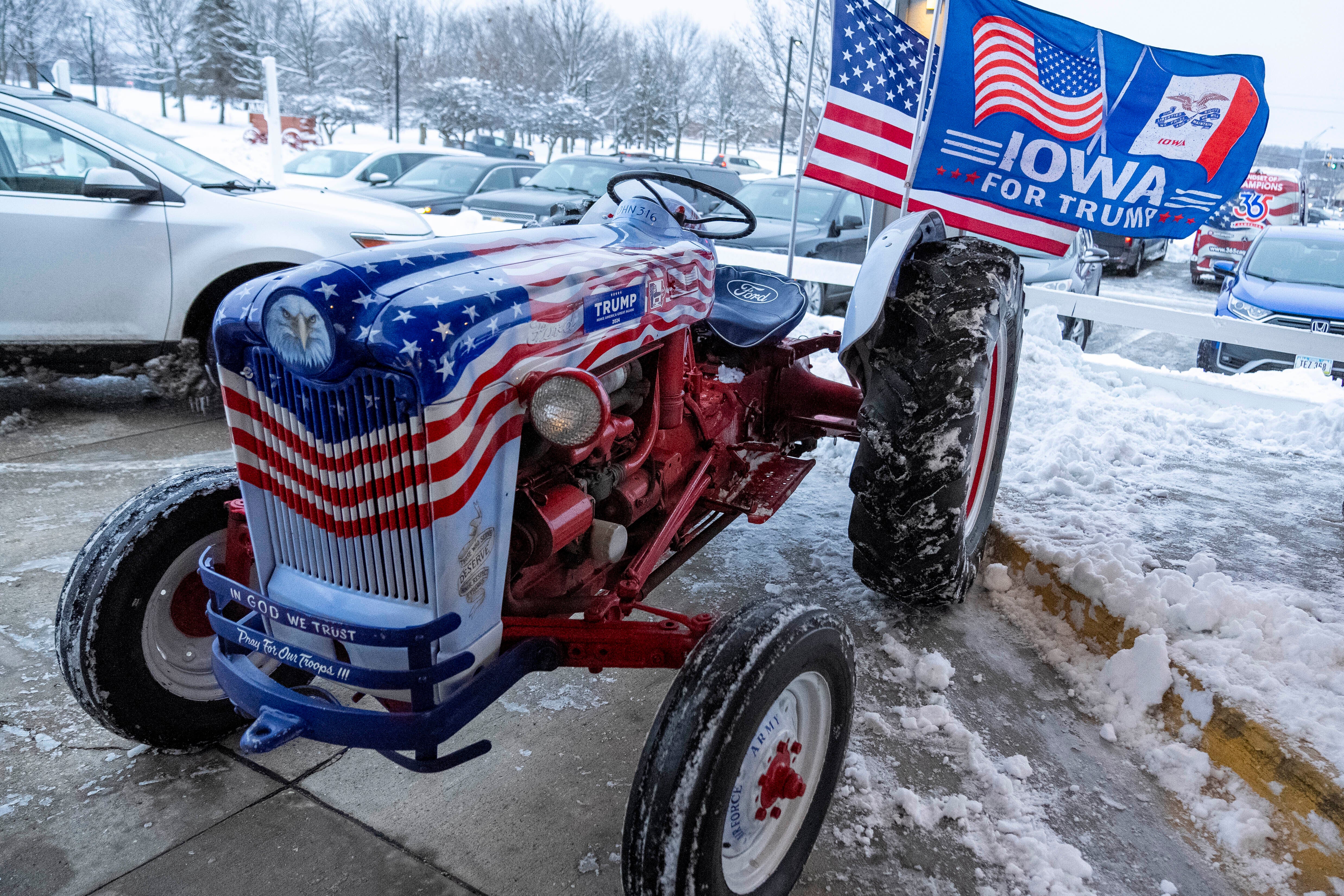
As Republican senators come under increasing pressure to endorse Mr Trump, Ms Ernst told The Independent she wants to remain silent on her preferences.
“We always remain neutral. We always want to make sure we’re welcoming every candidate and so Chuck [Grassley] and I will stay out of it,” she says.
“I feel like Governor DeSantis has done a lot. You know, he did go to every county, I think he’s, as far as I know, he’s the only candidate to do that this cycle,” Mr Nearmyer says.
Visiting all 99 counties is known as the “full Grassley”, named after the state’s long-serving senator.
“He’s really getting out there and doing a lot of events and meeting people. I’ve only been to the one that was in Newton. And it was a great event and he did a great job that day,” Mr Nearmyer says of the Sunshine State governor. “I have no doubt in my mind that he could do the job of president because he’s done such a great job with a major state like Florida.
What does Mr DeSantis need to do to do well on Monday?
“I don’t really know, because he’s doing it,” Mr Nearmyer says.
If a governor from a “major state” who’s doing everything right is more than 35 points behind a former president mired in deepening legal woes, could it be worth asking the question if the Iowa Caucuses has lost the qualities that gave the state its outsized role in American presidential politics in the first place?
Join our commenting forum
Join thought-provoking conversations, follow other Independent readers and see their replies
Comments